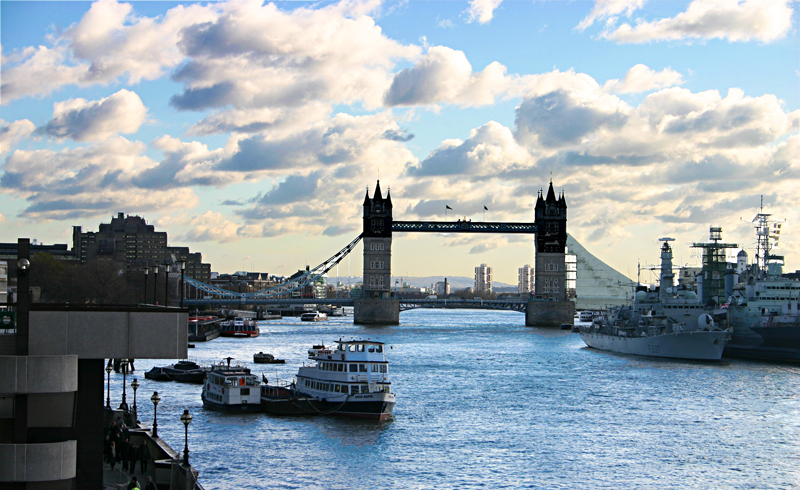A s alluded in this article earlier today pertaining to the reasons for the new electronics ban in the United States — which are considered “aviation security enhancements” — the United Kingdom introduces its own electronics ban; but the policy is not the same as the one implemented by the United States.
United Kingdom Introduces Its Own Electronics Ban
“In conjunction with our international partners and the aviation industry, the UK government keeps aviation security under constant review”, according to Christopher Grayling — who is the Secretary of State for Transport in the United Kingdom — at the official Internet web site of the government of the United Kingdom. “The UK has some of the most robust aviation security measures in the world and at all times the safety and security of the public is our primary concern. We will not hesitate to put in place measures we believe are necessary, effective and proportionate.”
Countries Which Are Affected By the Electronics Ban of the United Kingdom
Nonstop flights from airports in the following countries inbound to the United Kingdom — including airlines based in the United Kingdom such as British Airways — will be directly affected by this electronics ban, which is effective immediately:
- Turkey
- Lebanon
- Egypt
- Saudi Arabia
- Jordan
- Tunisia
Portable Electronic Devices Which are Not Permitted Aboard Airplane Cabins
Any portable electronic device — such as mobile telephones, laptop computers, e-readers and tablets — larger than the following dimensions are not permitted in any passenger cabin aboard airplanes on flights to the United Kingdom from the six aforementioned countries:
- Length: 16.0 centimeters
- Width: 9.3 centimeters
- Depth: 1.5 centimeters
Additional Information
According to Grayling, “We understand the frustration that these measures may cause and we are working with the aviation industry to minimise any impact. Our top priority will always be to maintain the safety of British nationals. These new measures apply to flights into the UK and we are not currently advising against flying to and from those countries. Those with imminent travel plans should contact their airline for further information. More information can be found on the Department for Transport website and the travelling public should consult the Foreign and Commonwealth Office’s travel advice pages on GOV.UK.” Passengers can keep up to date with the latest information pertaining to that travel advice — as well as additional information about hand luggage restrictions on electronic devices and items at airports in the United Kingdom.
“I know the House will recognise that we face a constantly evolving threat from terrorism and must respond accordingly to ensure the protection of the public against those who would do us harm. The update we are making to our security measures is an important part of that process”, continued Grayling. “We remain open for business. People should continue to fly and comply with security procedures.”
Summary
Well, at least a positive aspect of the United Kingdom version of the electronics ban does not include such items as cameras — but the United Kingdom remains as vague as the United States as to why these measures became effective as of today.
As with the United States, there is no word on whether or not affected passengers will receive any sort of compensation or be able to change their itineraries; cancel flights; or obtain refunds — but I would not count on it. That is up to the individual airlines.
Many mobile telephones will still be permitted in passenger cabins aboard airplanes on inbound flights from the lists of countries to the United States and the United Kingdom.
Wow. I am relieved. Now I can use my mobile telephone while aboard an airplane as a passenger during affected flights.
Oh, yeah — that’s right. Passengers cannot use their mobile telephones while in the passenger cabin aboard airplanes on affected flights — except if they want to play games or listen to music.
I personally do not believe Grayling and other people in high levels of governments really do understand the frustrations of passengers from the implementation of such drastic policies. When will the people running these governments learn that these draconian measures are basically similar to telling terrorists that they won? When will logic prevail where smarter and more efficient security measures are put into place without sacrificing the safety of passengers?
Do they really think that these measures will stop terrorists who are determined to carry out their agendas?
Based on my own — albeit relatively uninformed opinion — the only effectiveness these policy changes will have is to inconvenience the very passengers they are supposed to serve and protect. They will not affect those who create and enforce the policies; so why should they care how they affect you and I?
Perhaps we should start banning everything which has a remote chance of being a potential danger — but then, we would not have any flights operating anymore, would we?
Everything we do carries some form of risk. I do not want ridiculous polices implemented for the sake of “protecting” me. I want real measures implemented to ensure that flying as a passenger aboard commercial airlines remains as trouble-free of an experience as possible.
I truly hope that these electronic bans do not continue to spread to other countries…
Photograph ©2008 by Brian Cohen.
